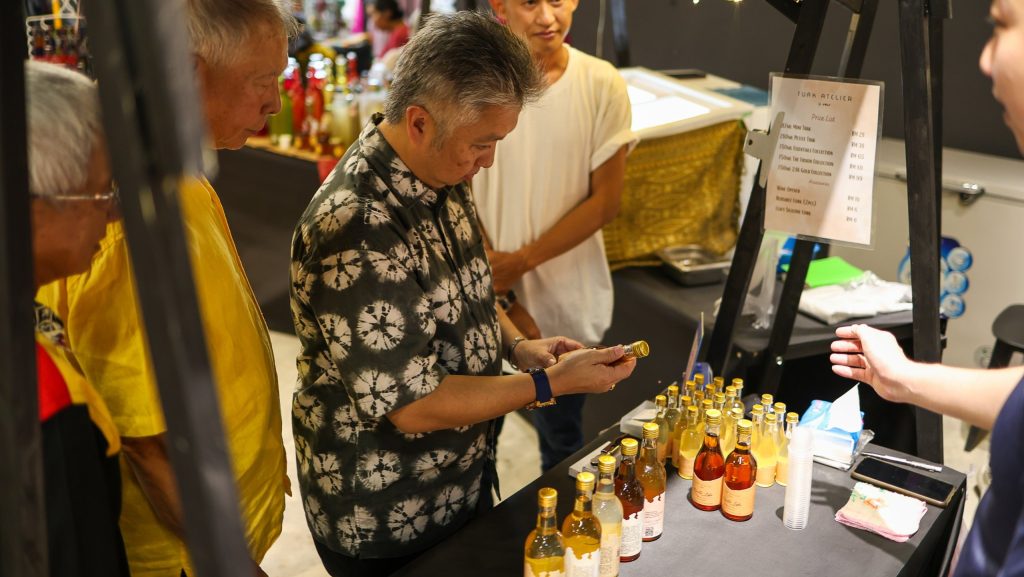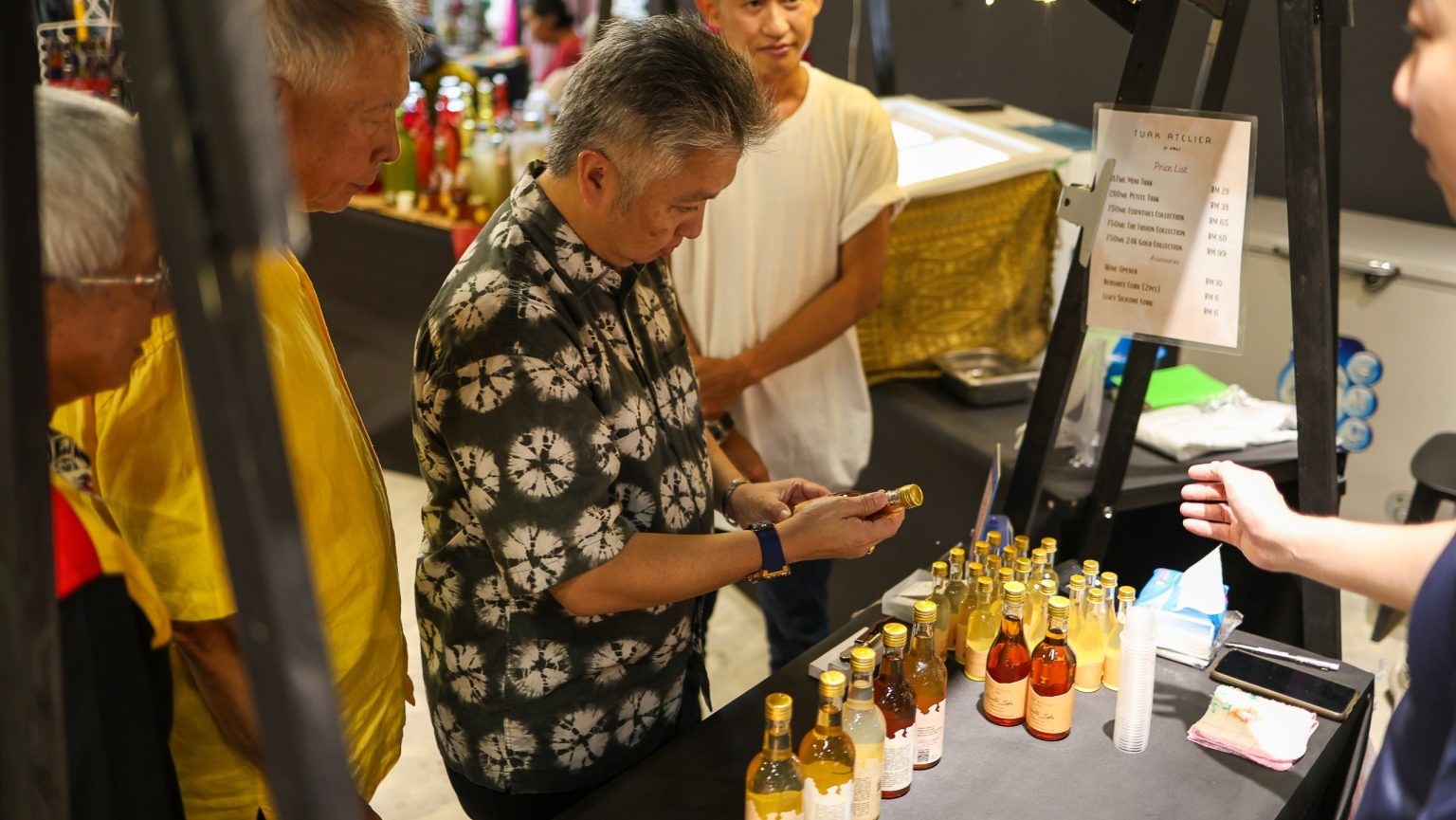KUCHING (Sept 17): The Borneo Tuak Festival 2024 concluded with a massive turnout of over 10,000 visitors over the long weekend. Co-organised by the Sago Group and the Culinary Heritage and Arts Society Sarawak (CHASS), the three-day event saw 80 booths showcasing a variety of tuak brews and local delicacies, marking a successful celebration of Sarawak’s rich cultural heritage.

Celebrating Sarawak’s Cultural Heritage Through Tuak
A Symbol of Dayak Identity and Heritage
Tuak, the iconic rice wine of the Dayak community, has been more than just a drink for centuries. During the festival’s closing ceremony, Deputy Minister for Creative Industry and Performing Arts Datuk Snowdan Lawan expressed how deeply tuak is embedded in the Dayak culture.
“It’s a living symbol of our identity, heritage, and history. Moreover, the rice wine connects us to the land, to our ancestors, and to one another,” Snowdan remarked.
Growing up, Snowdan recalled witnessing how tuak was revered in various ceremonies, from celebrations to important rituals. It played a vital role in bonding communities and marking significant milestones in their lives.
Tuak: From Cultural Tradition to Economic Growth
In his speech, Datuk Snowdan highlighted that tuak is not only an emblem of Dayak tradition but also a promising industry for Sarawak’s future economic development.
“Today, I am proud to see tuak evolving beyond just a cultural symbol. It is developing into an industry that honours our adat (traditions) while also presenting immense potential for Sarawak’s economic growth,” he added.
The Deputy Minister expressed optimism about the future of the tuak industry, pointing to the rise of modern and experimental brews. Sarawak’s creativity in brewing has led to innovations like the local gin, Ringin, made from langkau (a distilled rice wine). This reflects the ingenuity of local brewers in blending tradition with innovation, ultimately benefiting the state’s agricultural sector, including rice, fruit, and vegetable farmers.
Unlocking Economic Opportunities Through Tuak Commercialisation
Learning from Bali’s Arak Industry
During his address, Snowdan drew comparisons between Sarawak’s tuak and Bali’s arak, a traditional alcoholic beverage. He noted that Bali’s government has successfully commercialised arak, generating millions in annual revenue and preserving the craft’s cultural significance.
“Much like tuak in Sarawak, arak in Bali is deeply intertwined with the cultural and spiritual practices of the local communities,” he explained.
Snowdan believes Sarawak can emulate Bali’s success by supporting the commercialisation of tuak. This could unlock economic opportunities, especially for rural farmers and brewers, and open doors to international markets.
A Global Vision for Tuak
Snowdan further proposed the idea of transforming tuak into a global product, similar to Japan’s sake or Korea’s makgeolli. By doing so, Sarawak could elevate its unique rice wine onto the world stage, contributing to both cultural preservation and economic progress.
“Bali’s arak industry brings in millions annually, and we can replicate that success here while ensuring our own traditions continue to thrive,” he said.
Sarawak’s Diversity: A Reflection on Malaysia Day
Snowdan’s speech took a reflective turn as he connected the celebration of tuak to Malaysia Day, a day that marks the formation of Malaysia, with Sarawak as one of its key partners.
“When Sarawak formed Malaysia with the other partners, we brought with us our rich mosaic of cultures, languages, and traditions,” he said.
He likened the diverse threads of pua kumbu (traditional Iban weaving) to the way the various ethnicities and cultures of Malaysia are woven into one vibrant fabric. Just as the threads of pua kumbu create a beautiful tapestry, the different cultures within Malaysia contribute to the nation’s unity and diversity.
The Future of Borneo Tuak Festival and Sarawak’s Cultural Identity
The Borneo Tuak Festival 2024 was more than just a celebration of Sarawak’s rich traditions. It was a platform to explore the potential for local brewers, farmers, and artisans to create an industry that respects heritage while also driving economic growth. With continued innovation and government support, Sarawak’s tuak could very well follow in the footsteps of international beverages like sake, makgeolli, and arak, symbolising both cultural pride and entrepreneurial success.
As the festival continues to grow, it promises to be a significant event for locals and tourists alike, offering a glimpse into the heart of Sarawak’s Dayak heritage and the evolving story of tuak.


